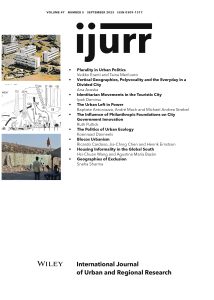Today, design disciplines such as ecological urbanism aim at fusing natural and social sciences to restore the equilibrium between social and natural systems, and in extenso the urban and natural environment. But recent literature in urban political ecology and urban history has shown how this socioecological approach is generally stripped down to a merely ecological perspective, ignoring the sociopolitical side of the urban ecological project. I therefore argue that there is a need for a research programme that interrogates the history of the interaction between ecology, planning and politics. In this article I respond by developing a historical perspective on the rise of the ecosystemic approach towards the city, delving into the agency and political nature of ecological science itself. Through an in-depth historical analysis of the Brussels school of urban ecology and urban ecologist Paul Duvigneaud, I highlight how urban ecology influenced politics through its association with the regional government and vice versa to argue that ecological knowledge was used to overcome political opposition, incorporate a specific regionalist agenda and build an ecological zoning practice in urban planning policies.

